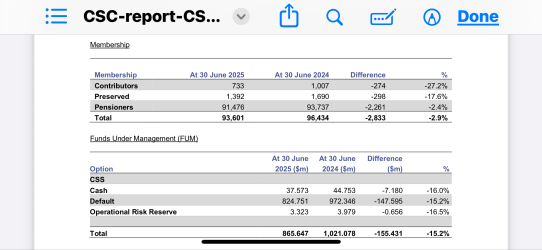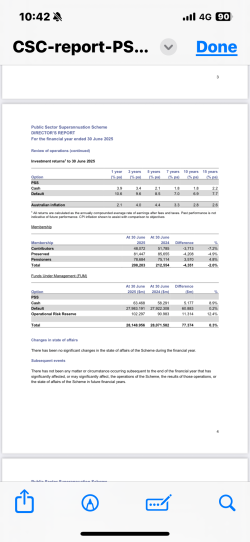I haven't seen any mention of the tax-free Transfer Balance Cap when in pension phase (now $2M) as part of the overall discussion here (perhaps I missed it). As I understand, the maximum amount you can have "tax free" in pension phase is the $2M, and then it gets taxed if you go over that figure or you have to take some out?
So we have different Caps, one at $2M for pension phase, one at $3M for accumulation phase (taxed at 15% up to $3M, 30% over that up to $10M when tax goes up to 40%).
So why doesn't the accrual phase match the pension phase? This seems to be where many younger people see a rort existing, in that people can build vast super balances, but only use $2M towards a pension. I have heard comments about older generations getting a major concession in the accrual phase, when only a (sometimes) small part can be used to provide a pension.















